Play can have a surprising way of unfolding. We may think we know how children will use a space or the materials within it, however I am often amazed at where children’s creativity will lead them. Recently, I have also been thinking about what would have happened if I had not interrupted children’s play. Sometimes I want to comment, take a photograph, or interject in some way. Sometimes it feels necessary, such as to help problem solve. There are two dilemmas I see here.
1)How can I be more intentional with my interruptions and keep them to a minimum.
2)Learning to trust more (the child/ren) and employing that power of pause.
These two questions can be applied to many different scenarios though my focus here is on child-material encounters.
I would like to focus on those unsettling moments , where children are starting to paint their arms or face with paint, piling all the toys and loose parts into an elaborate sculpture minutes before “clean-up” time, or using paint to make a piece of art … with the wooden unit blocks! I think about these moments because they were scenarios where I jumped right in I didn’t pause to reflect. Just a halting STOP! Though I may not have used those words my body language and conversations with the children definitely shut down the play and any chance of connecting with the children in these moments.
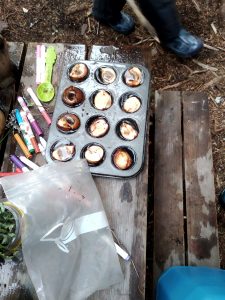
The day a box of new markers were used for making potions (oops). What wasn’t used was quietly put away and warn out markers were provided instead.
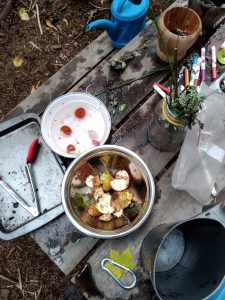
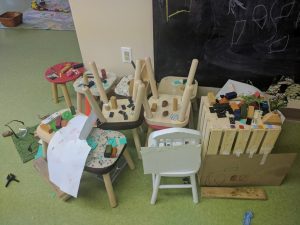
Moon Party. I only witnessed the end part of this project. This was taken over a year ago. At the time I felt unsettled by the “mess.” When i look at this photo now, I remember the joy the children had building this and the pride, as they told me all about the party.
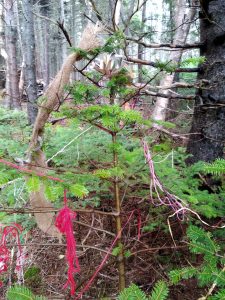
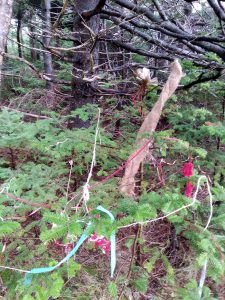
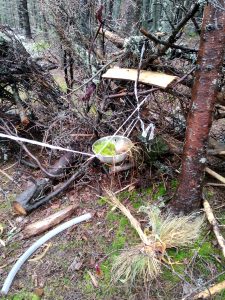
Standing back, and letting it all unfold. While I was interested to know the story of this play, I watched from a distance, until I was invited in. I have learned sometimes we need to just get out of the way and let play happen 🙂
As I was reading an article for my Qualitative Methodologies class on the Mosaic Approach, there was a quote that connected with this post. While this article focuses on research, I think it can be argued that as Early Childhood Educators, we are definitely researchers in our own way.
One of the challenges in allowing a shift in relationships is accepting the place of the unexpected. In research terms, this may mean being relaxed about the focus of the study and not worrying if children lead the study into unplanned areas …. The advantages of accepting a shifting in power are a release from the need for adults to ‘know all the answers’ (Clark 2005, p.25-26).
How do developmental checklists, school readiness, the clock, the daily “schedule,” our own agenda, our “planned” activity, worries about mess, noise, and other peoples perceptions of us get in the way of the unexpected?
How do you navigate that delicate dance?
References
Clark, A. (2005) ‘Ways of seeing: using the Mosaic approach to listen to young children’s per-spectives’, in Clark, A., Kjørholt and Moss, P. (eds.) Beyond Listening. Children’s perspectives on early childhood services (pp. 29-49). Bristol: Policy Press.
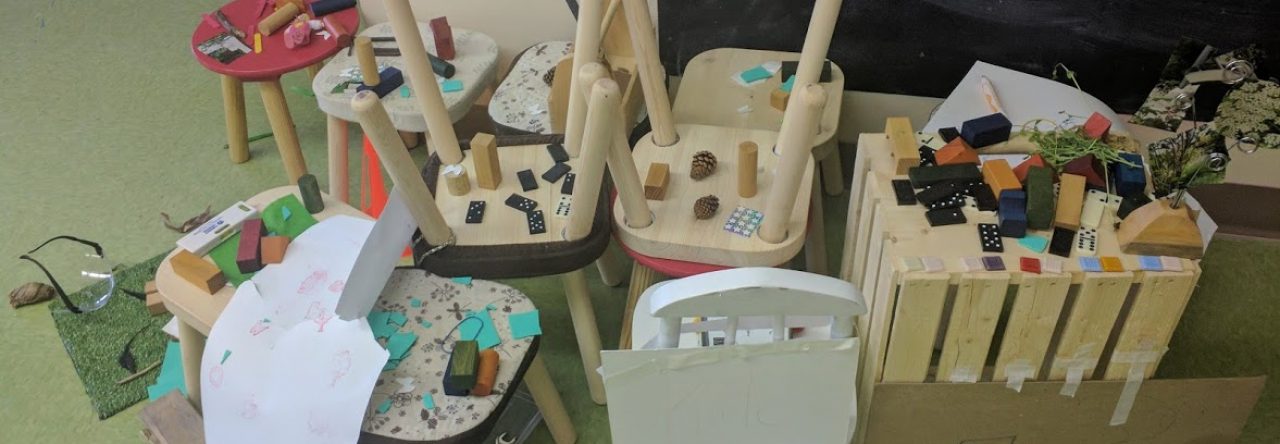
Leave a Reply